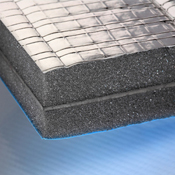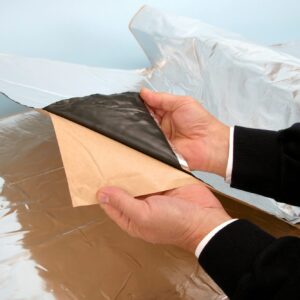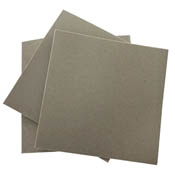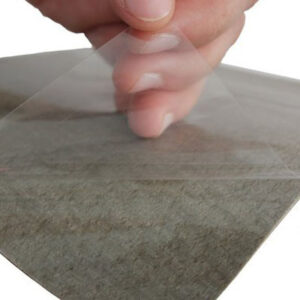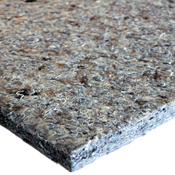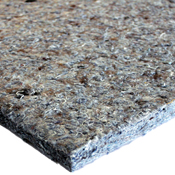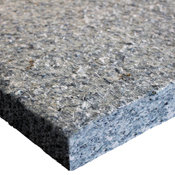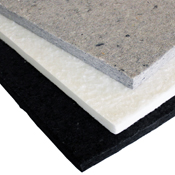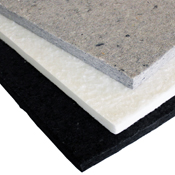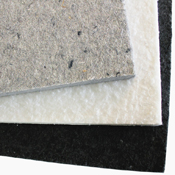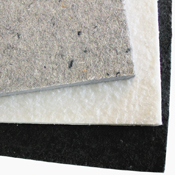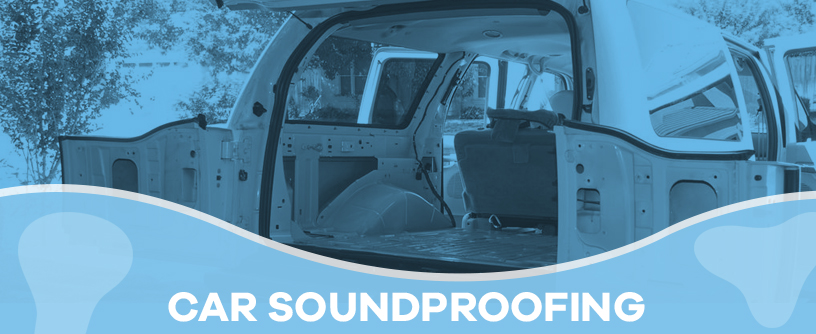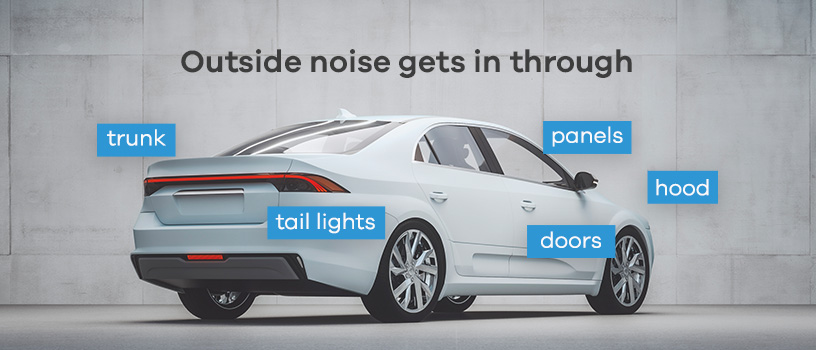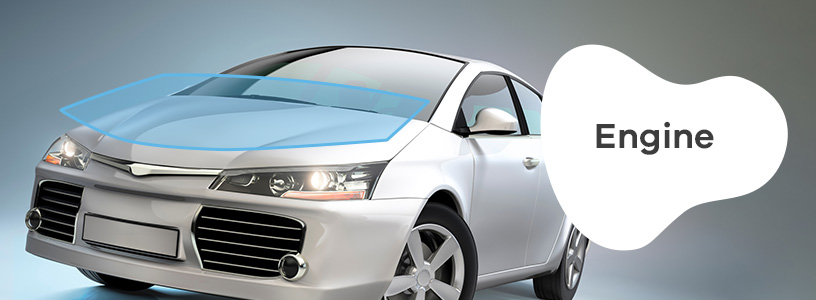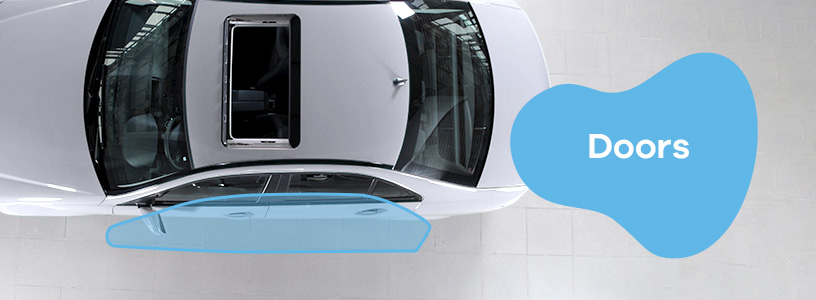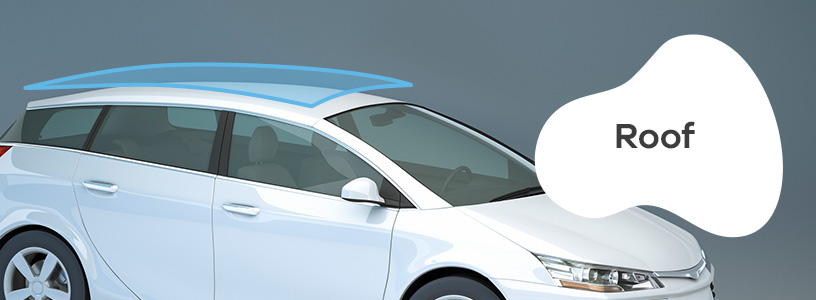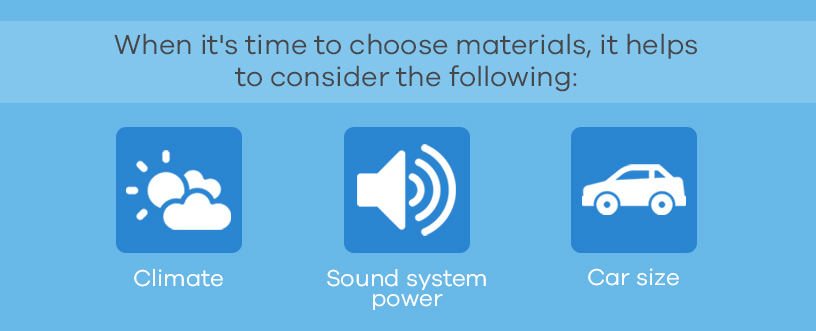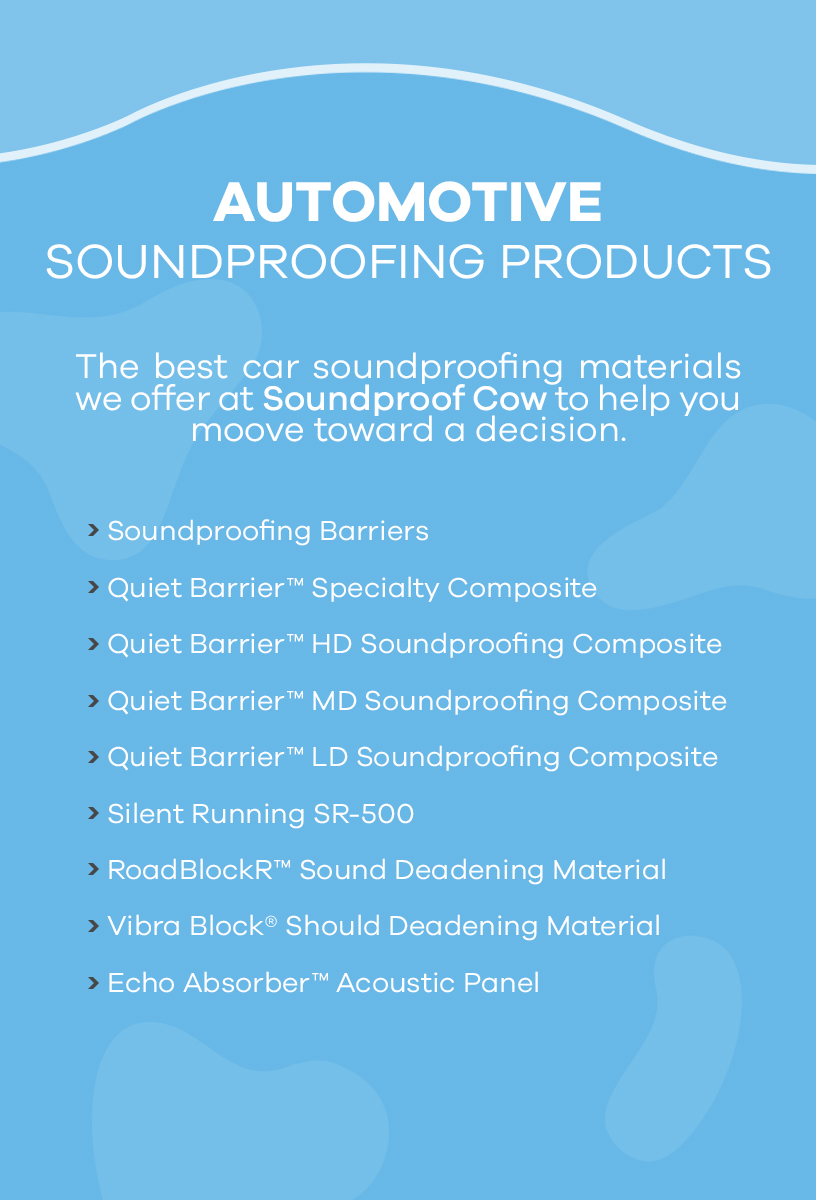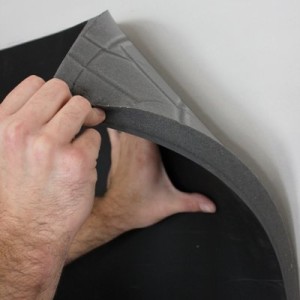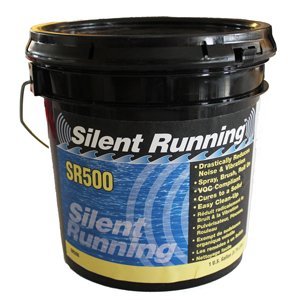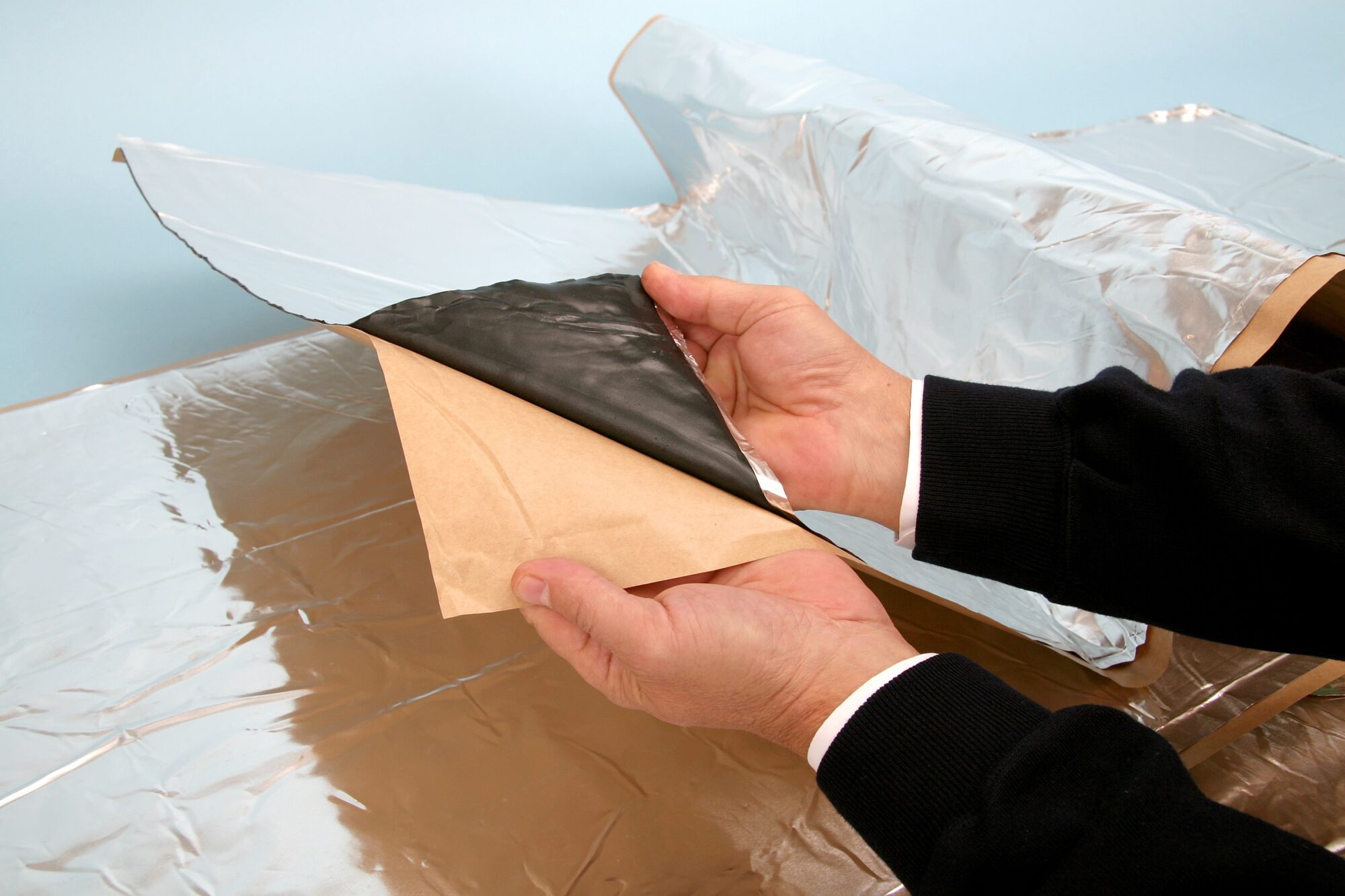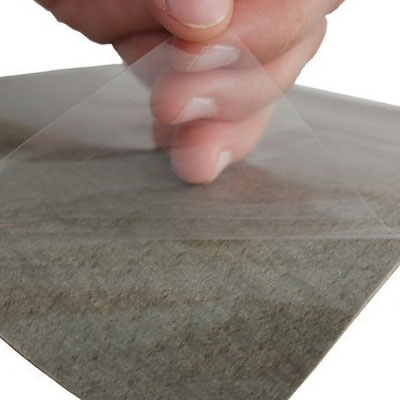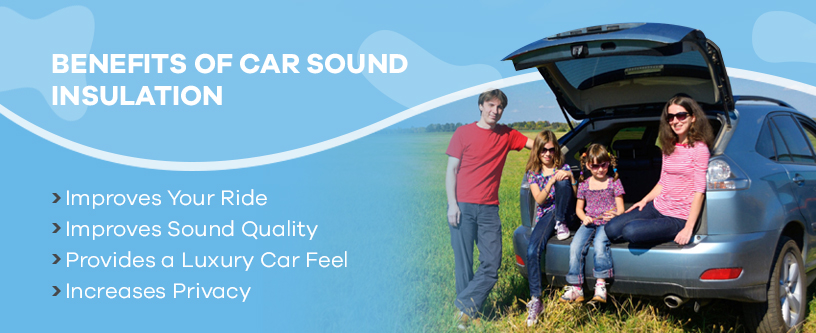
Car Soundproofing Materials
You spend a lot of time behind the wheel. Whether you are commuting to work, visiting friends and family, running errands, or going out to eat, the acoustics in your car can determine if you have a pleasant driving experience. With car soundproofing materials from Soundproof Cow, you can reduce loud engine noises, harsh volume levels, poor audio quality and raised voices, making it possible for you to enjoy car rides more.
Sound-deadening materials added to the engine, trunk, floors, doors, tires and roof can dampen vibrations and improve sound quality in cars. Browse our selection of car sound-deadening materials or visit the links below to learn more about soundproofing your car.
- Types of Car Noise
- How to Soundproof Your Car
- Automotive Soundproofing Products
- Benefits of Car Sound Insulation
-
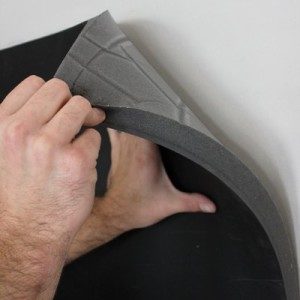
Quiet Barrier® HD Soundproofing Composite
$349.99Shop Now -
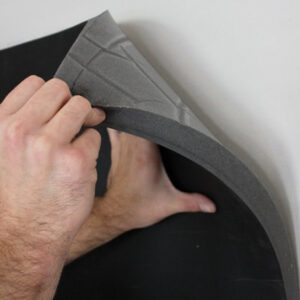
Quiet Barrier® HD Soundproofing Composite (w/PSA)
$434.99Shop Now -
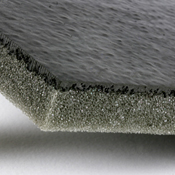
Quiet Barrier® LD Soundproofing Composite
$229.99Shop Now -
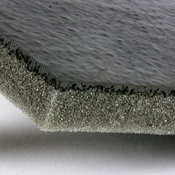
Quiet Barrier® LD Soundproofing Composite (w/PSA)
$279.99Shop Now -
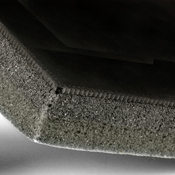
Quiet Barrier® MD Soundproofing Composite
$265.99Shop Now -
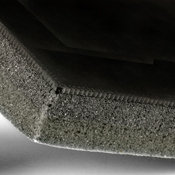
Quiet Barrier® MD Soundproofing Composite (w/PSA)
$325.99Shop Now -
Sale!
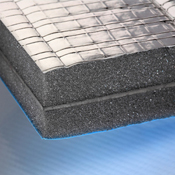
Quiet Barrier® Specialty Composite w/PSA
Original price was: $209.99.$199.99Current price is: $199.99.Shop Now -
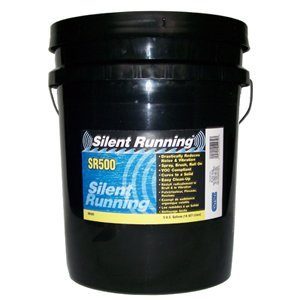
Silent Running Soundproof Coating (5 gallons)
$649.99Shop Now -
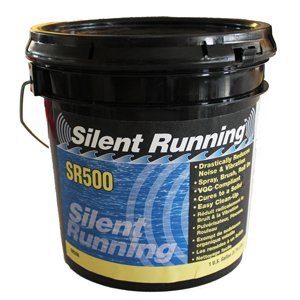
Silent Running SR-500 (1 gallon)
$135.99Shop Now
Get a Free Acoustic Analysis
Car Sound Absorbing Materials
-
Echo Absorber™ Acoustic Panel (Natural Blend – 1″x2’x4′)
$29.99 – $389.87Shop Now -
Echo Absorber™ Acoustic Panel (Natural Blend – 1″x4’x4′)
$45.99 – $275.94Shop Now -
Echo Absorber™ Acoustic Panel (Natural Blend – 2″x2’x4′)
$40.99 – $245.94Shop Now -
Echo Absorber™ Acoustic Panel 1″ (Case of 14)
$839.86Shop Now -
Echo Absorber™ Acoustic Panel 1″ (Case of 6)
$359.94Shop Now -
Echo Absorber™ Acoustic Panel 2″ (Case of 3)
$209.97Shop Now -
Echo Absorber™ Acoustic Panel 2″ (Case of 8)
$559.92Shop Now
Car Soundproofing Materials
Automobile soundproofing means improving your car’s soundproofing and reducing unwanted noises. . While it isn’t possible to have a completely soundproof vehicle, there are ways to reduce — or dampen — annoying noises and enhance the sound system.
Outside noise gets in through the tail lights, license plates, panels, doors, hood and trunk. These areas let unwanted noise leak into your car, and they all can be controlled if you have the right car soundproofing materials.
Even if you have no idea how to soundproof a car, you can create a smooth, luxury car-like ride with a little time and effort. The truth is, soundproofing a car is a lot easier than you might realize.
All that is required for car soundproofing is the correct dampening materials, also known as sound-deadening products. Dampening barriers, coatings and deadening material can be applied to the various parts of your car to prevent outside noise from coming in. Soundproofing can also improve the noise you want, like your stereo and your in-car conversation. It can make an incredible difference in the quality of your ride every time you take the car out for a spin.
Types of Car Noise
There are two main types of car noise that most drivers will have to contend with. One is road noise. This is the noise you encounter from the environment as you’re driving. Honking cars, construction work, sirens, radios — these can all contribute to road noise. You can escape road noise by driving in quieter areas, but this isn’t always feasible.
The other main type of car noise comes from the engine. While you should listen to your car for sounds that it shouldn’t be making, some regular engine noise is standard, and if you have a particularly loud engine, it can get very frustrating, as this is noise that you cannot escape. It goes wherever you go.
Your car may have a very quiet engine but be poorly insulated against external road noise. Or, you may be well-protected from external noise but have a loud engine. Whether you have either of these problems or both, there are car soundproofing solutions you can implement.
Areas of the Car to Soundproof
As you approach the process of automotive soundproofing, you need to know the areas to focus on. Immediately applying soundproof insulation for cars may do some good, but some areas will yield greater results. Here are the main areas of your car to soundproof.
Engine
Your car’s engine produces a lot of noise as you drive and may be the source of most of your auditory discomfort. That’s why it’s one of the best areas to focus on when engaging in vehicle soundproofing.
The good news is that soundproofing the other areas of your car will have at least some effect on reducing the noise you hear from your engine. For instance, having soundproofed doors, floors and roofs will help reduce echo and reverberation in a car’s cab, which will make even a loud engine a bit more tolerable. But you want the best results, so you should do what you can to soundproof the engine itself.
Apply automotive sound deadening material under your car’s bonnet, or hood. This will help absorb some of the sounds from your engine before they make their way to your ears as you drive.
You can also visit a trusted mechanic to take a look at your engine if it seems noisier than it should be. You may have an exhaust problem that needs fixing, or you may want to consider installing some aftermarket items that help reduce engine noise.
Trunk
Airborne and contact noises can enter your vehicle’s cabin through the trunk. This is true whether you have a sedan, coupe, hatchback or isolated trunk. And if you have a high-end sound system, chances are high that the subwoofer and amp will be in your trunk. For the best audio quality possible, you want to reduce the chance for those bass frequencies to bounce around in your truck, as this can lead to a muddied, unpleasant bass response.
Your best bet is to apply sound dampening material on the bottom and sides of your trunk. You can add this material under your current carpeting, if applicable. If your trunk lacks a layer of carpeting, you should apply some over your sound deadening material for even better results. This will keep unwanted noise from your trunk while ensuring your bass sounds fantastic.
You’ll need to remove all the items from your trunk before applying the sound deadening material. This is a good opportunity to remove unnecessary items from your trunk. It’s easy to put small or large items in your trunk and forget about them, but these items could shift around and contribute to unwanted noises. Use this opportunity as a fresh start to keep your trunk as clean and soundproof as possible.
Doors
Your doors could be one of the main culprits for letting in unwanted sound. Some makes and models use thin doors with several empty chambers for windows, locks and handles. This makes it easy for sound to travel through, so you’ll have to fill up that space and create a barrier to absorb some of the sounds coming from outside.
Insulate your car doors to achieve the best results. You’ll need the right car door sound deadening material, preferably one with peel-and-stick functionality for easier application. But first, you’ll have to access the interior of your car doors.
Remove your car door’s interior screws to free the panel. Make the correct measurements and cut your sound deadening material, and apply it. Cover as much of your door’s interior as possible for the best results. Once you’re finished, reattach your door panel and enjoy the results!
Floors
Car floor soundproofing is critical for a more enjoyable driving experience. Your car’s floor may be thinner than you think. As you travel, sounds from the road will travel up to you through your car’s floor. To combat these sounds, start by ensuring you have floor mats in your car. If you’re driving around with bare metal flooring in your car, a simple floor mat will go a long way toward absorbing sound from your car’s undercarriage.
But standard floor mats still leave a lot to be desired. Most of them are thin and not ideal for the kind of soundproofing you may be looking for. You should place car floor sound deadening materials underneath your floor mats for the best results. These products will reduce resonance and absorb noise, helping to cancel out some of the most unpleasant road noises that make their way into your vehicle’s cabin.
Tires
Your tires contribute to the noise you hear while driving. They make constant contact with the road, sending those vibrations and soundwaves up to you as you drive. Here are the three factors to consider to get less sound from your tires:
- Tire size: Low-profile tires have less rubber separating the metal of your wheels and your vehicle, so sound can travel more easily. When it comes to having quieter tires, more rubber is better.
- Tire width: Wider tires make more contact with the road, which contributes to more noise. Use the narrowest wheels your vehicle can support for a quieter experience.
- Tire noise rating: Many of today’s tire manufacturers include a noise rating. Most ratings include a decibel number and a wave symbol that reveals how loud you can expect the tire to be. Choose tires with a low decibel and small wave symbol.
Roof
Chances are high that your car’s roof comes with minimal soundproofing. You’ll have to apply insulation to your roof to block out unwanted noise from outside your car while absorbing more sound within the cabin. Remove the cloth headliner and apply a layer of sound deadening material beneath it. Then cover the inside of your roof again with the cloth headliner.
How to Soundproof Your Car
The key to soundproofing your car is putting sound deadening materials in the right places to reduce vibration and sound leakage into and out of the car. The first step is choosing the materials you want to use. It’s up to you how much to use, and you may need more than one type of material to get the results you want. It’s most important to choose quality materials that won’t damage any part of your car.
You can place soundproofing materials beneath door panels, under the carpet, in the trunk and maybe even in the engine compartment or any area where noise is problematic.
Step One — Choose Your Soundproofing Materials
When it’s time to choose materials, it helps to consider the following:
- Climate: Do you live somewhere where it gets bitterly cold or scorching hot? Take this into consideration when selecting car soundproofing products, so you pick materials that perform well in various conditions.
- Sound system power: Do you have amplifiers for your car speakers? How powerful are your speakers? Think about your speakers’ root mean square (RMS) which measures the output of continuous power a speaker can handle. Speakers with higher RMS ratings produce louder, cleaner music and should be a factor in the material you choose. The greater power your speakers have, the more extreme material you’ll need to handle it.
- Car size: The amount of material you choose also depends on the size of your car. A small car like a hatchback will require fewer materials than an SUV, for example.
With the above considerations in mind, you might choose any of the following soundproofing materials for your car:
- Easy-to-install dampening mats
- Sound-absorbing insulation
- Sprays or soundproof coatings
- Foams to reduce vibrations
Step Two — Gather Your Tools
After you have your materials, you’ll need to gather a few tools. The installation instructions that come with the soundproofing material should tell you everything you need. To give you an idea of what to expect, you might need the following tools when it’s time to turn your car into an acoustic oasis:
Step Three — Apply Soundproofing Materials
Once you have your soundproofing materials and tools ready to go, it’s time to transform your vehicle. Here’s an overview of how to soundproof your car:
- Remove panels and other components: Pop off door panels, take out the seats and remove any other parts where you want to install soundproofing products.
- Measure and cut: Measure door panels, the floor and other areas that need to be prepped, and cut the insulating or sound deadening materials to fit those measurements.
- Clean the metal: Use acetone to clean the car’s metal surfaces and make sure they are free of oil or grease. This helps ensure soundproofing materials properly adhere.
- Apply adhesive: Although it may not be necessary depending on the material you choose, you may need to apply adhesive to the metal surface before installing the sound deadening material. Some soundproofing materials have a peel-and-stick backing for easy installation.
- Install soundproofing materials: Firmly press the soundproofing material in place. For example, you might install a dampening mat between door panels to reduce vibrations, or inside the engine compartment. Consider using a hairdryer to heat the material and improve adherence.
- Smooth out bumps: Using a roller, roll out any bumps or air bubbles. Do this as many times as needed until the surface is smooth.
- Fill in gaps: Look for any spaces around panels or between materials and apply soundproofing or insulating spray foam.
- Allow time for drying: Wait for the materials to dry completely before replacing car components.
- Piece it all together: Replace the carpet, seats, dashboard, panels or any other parts removed and get ready to enjoy a peaceful ride.
Automotive Soundproofing Products
Soundproofing often combines sound deadening and sound absorbing materials for quality results. A sound deadening material may reduce or absorb unwanted sound, while a sound absorbing material’s main job is to absorb the energy from sound waves and turn it into small amounts of heat. We’ll show you the best car soundproofing materials we offer at Soundproof Cow to help you moove toward a decision.
1. Soundproofing Barriers
Soundproofing barriers are composite layers of foam or fiberglass and vinyl. They work to block noise and reduce vibrations to improve overall sound quality. Soundproofing barriers are flexible and have peel-and-stick backings, making them easy to install in a trunk or other irregularly-shaped spaces in a car. If you’re looking for a simple car soundproofing solution, consider the following types of soundproofing barriers:
- Fiberglass composites: Fiberglass composites combine a fiberglass blanket with a soundproofing material and polyester film cover. Fiberglass composites make an excellent choice if you want to reduce noise and install soundproof insulation in your car for greater comfort. Check out our Quiet Barrier® Fiberglass Composite which uses our high-grade soundproofing Quiet Barrier® material.
- Foam composites: Foam composites include at least one layer of Quiet Barrier® soundproofing material and a layer of acoustic-grade polyurethane foam. The Quiet Barrier® works as a powerful sound blocker while the foam layer absorbs sound and enhances the blocker. You can use foam composites just about anywhere suitable for insulating foam.
- Mass loaded vinyl barriers: Mass loaded vinyl (MLV) barriers are as tough as they sound. An MLV barrier is composed of salts, sands and small metal particles. An MLV soundproofing material adds mass to block sound waves. You might install MLV barriers between door panels to keep noise out and keep your music in. MLV does not absorb sound, so even though it’s effective on its own, it works even better when combined with other soundproofing materials.
- Temporary barriers: Temporary barriers are acoustic quilts you can hang or lay down anywhere you need a fast soundproofing solution. Composed of fiberglass and a nonporous vinyl covering, temporary barriers are high-performers when it comes to absorbing sound. You might place a temporary barrier in the trunk for example, or anywhere you want temporary, installation-free soundproofing.
2. Quiet Barrier® Specialty Composite
Our Quiet Barrier® Specialty Composite includes four layers of soundproofing material for superior noise protection. The top polyester film layer resists heat, tearing and high-frequencies, and it’s a piece of cake to clean. The next layer underneath is a thick foam that absorbs noise at all frequency levels. The third layer is a pound of Quiet Barrier® LD soundproofing material which functions as a tough sound blocker. Finally, the fourth foam layer keeps the barrier from the mounting surface for maximum noise and vibration reduction.
You can use Quiet Barrier® Specialty Composite just about anywhere, including under the hood or in the trunk. It’s designed to block the loudest sounds and is highly durable in extreme weather conditions.
If you want ultra-easy installation, consider Quiet Barrier® Specialty Composite with peel-and-stick pressure-sensitive adhesive (PSA) backing. With the Quiet Barrier® Specialty Composite with PSA, you only need to peel off the backing and stick it firmly in place.
If you live in an extreme climate, you might consider Quiet Barrier® Specialty Composite an excellent soundproofing choice for your car.
3. Quiet Barrier® HD Soundproofing Composite
Our Quiet Barrier® HD soundproofing composite contains a thick, two-pound layer of Quiet Barrier®. Combined with one inch of acoustic foam, the Quiet Barrier® HD soundproofing composite offers noise protection in two ways. First, the barrier layer adds dense mass to effectively block noise. The polyurethane foam layer also adds mass to block noise and keeps the barrier separate from the mounting surface to boost its soundproofing abilities. As a whole, the Quiet Barrier® HD soundproofing composite provides outstanding protection against vibrational sounds and unwanted noise.
You can easily install Quiet Barrier® HD in the trunk or under the carpet. Choose Quiet Barrier® HD™ soundproofing composite with PSA for simple peel-and-stick installation.
4. Quiet Barrier® MD Soundproofing Composite
If you’re looking for high-quality soundproofing composite that falls somewhere in between Quiet Barrier® Specialty Composite and Quiet Barrier® HD composite in terms of thickness, you might choose Quiet Barrier® MD soundproofing composite. Quiet Barrier® MD soundproofing composite is a medium-density soundproofing material containing a one-pound layer of Quiet Barrier® and one inch of acoustic polyurethane foam. Quiet Barrier® MD might be the perfect car soundproofing material for tighter spaces where you want sound control. We also offer Quiet Barrier® MD soundproofing composite with PSA for fast and simple installation.
5. Quiet Barrier® LD Soundproofing Composite
For a lightweight, economical solution with high soundproofing power, try our Quality Barrier™ LD soundproofing composite. Quality Barrier® LD composite is thinner and lighter than the other Quiet Barrier® soundproofing composites, offering extreme flexibility. You can place Quiet Barrier® LD soundproofing composite anywhere you need to block sound and reduce vibration, including tight or awkward spaces in your car.
Quiet Barrier® LD combines a half-pound layer of Quiet Barrier® with a half inch of acoustic foam. Its thin and flexible composition also makes it easy to cut, providing greater opportunity to use it anywhere. For a stick-in-place application, check out our Quiet Barrier® LD soundproofing composite with PSA.
6. Silent Running SR-500
Just as the name implies, Silent Running SR-500 soundproofing coating will increase the sweet sound of silence in your ride. Silent Running SR-500 is a high-performance coating specially designed to absorb noise and vibrations. One gallon of Silent Running SR-500 covers about 40 square feet. Consider our five-gallon pail of Silent Running SR-500 to ensure you don’t run out in the middle of your project.
Silent Running SR-500 won’t chip or crack and can withstand extreme temperatures. It adheres well to metal and other surface materials like fiberglass and most plastics, making it another reason to use it in your car. Silent Running SR-500 can be applied to small, tough-to-reach gaps, holes or any spaces other soundproofing materials can’t get to. You can apply it to door or trunk liners, floor pans or use it in combination with other sound deadening materials for the ultimate quiet ride.
7. RoadBlockR™ Sound Deadening Material
Our RoadBlockR™ sound deadening material was specially engineered for premium auto soundproofing and reducing sound transmission in metal surfaces. It’s the ideal material for making any car feel like a luxury drive or enhancing the quality of your sound system.
As a rubber-based sound dampening material with a polished foil facing, RoadBlockR™ is priced to be a cost-effective solution for your car soundproofing needs. It’s a highly flexible material that’s easy to trim for tiny unconventional spaces and features a peel-and-place application for simple installation. You might apply RoadBlockR™ to car doors, floors and trunks for high-powered noise reduction.
8. Vibra Block® Sound Deadening Material
Our Vibra Block® sound deadening material is available as a sheet, strip or pad. Vibra Block® is a lightweight sound deadening material composed of a specially engineered vibration-reducing polymer. It’s the premier material for use on metal panels and enclosures and is the best vibration dampening material we offer at Soundproof Cow. Vibra Block® only requires you to peel the backing and press it into place, so it’s also easy to use.
If your main soundproofing concern is rattling, whirling or other vibrating automotive sounds, Vibra Block® may be the material you’re looking for.
9. Echo Absorber™ Acoustic Panel
Looking for budget-friendly car soundproofing products that don’t skimp on quality or performance? With Echo Absorber™ acoustic panels, you can listen to your moo-sic and have money left over for a smooth cross-country road trip. Our Echo Absorber™ acoustic panels are made from 80 percent recycled cotton, resistant to mold and effective at trapping heat. You can install Echo Absorber™ panels on any flat surface to reduce unwanted noise and improve overall insulation. So, the music in your car will sound better, and you’ll feel more comfortable when you take your car for a spin.
We offer Echo Absorber™ acoustic panels in a variety of sizes, and you can also choose to buy them in cases of three, six, eight or fourteen.
Benefits of Car Sound Insulation
Car insulation and soundproofing products make a big difference in comfort and enjoyment when you’re cruising with friends or singing your favorite tunes riding solo. Whether you put a lot of time and energy into a quality sound system or simply want a more relaxing and pleasant commute, soundproofing is worth every step. Here are the major benefits you can expect when you install sound deadening car materials.
1. Improves the Ride
You spend a lot of time in your car. Shouldn’t you enjoy the ride? Long car rides with poor acoustics lead to headaches for travelers. Having to raise your voice to be heard over the sound of the car or listening to the constant noise of the engine leads to unhappy travel.
A strange noise can indicate a problem with your car that needs to be addressed, but even the normal sounds of the car can be irritating, especially in older cars and on long drives. Soundproofing a car can minimize these sounds and make them much easier to deal with. Car soundproofing materials also make your ride more comfortable because they help keep out heat from the engine and the road.
2. Improves Sound Quality
Soundproofing materials provide better music sound quality so you get the most out of your sound system. There’s a good chance you don’t even know how good your stereo sound really is. If you’ve been letting your radio compete with all the noises you experience on your daily drive — from the sounds of the outside world to the various rumblings and grumblings your car makes — you may be missing out on some high-quality sound and not even realize it.
Soundproofing cars with the right soundproofing materials can make you feel like you’ve put in a whole new stereo system, without the accompanying price tag.
3. Provides a Luxury Car Feel
Automobile soundproofing materials help you reduce outside noise while reducing vibrations throughout your vehicle. You get the luxury feel without having to spend tens of thousands of dollars on a luxury vehicle. There’s no question that higher-quality cars sound better. You’ve undoubtedly heard the phrase “engine that purrs like a kitten.” The right soundproofing products can’t actually improve the quality of your car, but they can improve how you feel when you are in your car. Car owners come to Soundproof Cow because they want to enjoy their ride. With our automobile soundproofing products, they can.
4. Increases Privacy
If you spend a lot of time in your car, you likely value your privacy. You may not want the whole world to hear you when you’re talking to your boss on speakerphone, nor would you want outside noises to interrupt. You can also feel less guilty about listening to your music loudly if you like to cruise at night.
Frequently Asked Questions
Want to learn more about soundproofing your car? Check out a few of our most frequently asked questions.
Is Sound Deadening a Car Worth It?
No matter what kind of sound you are dealing with, sound deadening is a great way to achieve a more quiet, enjoyable driving experience for you and your passengers. Installing the right kind of sound deadening material ensures you take care of anything from road noise to poor audio quality effectively.
What Is the Difference Between Sound Deadening and Soundproofing a Car?
While both terms are similar, there is a difference between sound deadening and soundproofing a car. Sound deadening is meant to dampen or reduce sounds, while soundproofing involves installing materials to completely eliminate unwanted noises.
How Much Weight Does Soundproofing Add to a Car?
Depending on factors like the type of noise you are dealing with, the size of your car and which materials you install, soundproofing will add a varying amount of weight to your car. No matter what, though, the amount of weight will be insignificant.
What Is the Best Material to Reduce Road Noise in a Car?
Because all sound issues are unique, there are many different kinds of soundproofing and sound deadening materials available. From RoadBlockR™, which reduces road noise, to Vibra Block®, which easily sticks to vibrating surfaces, Soundproof Cow offers various effective options and can help you find the right material for your specific situation.
Why Trust Soundproof Cow for Car Insulation Solutions?
Soundproof Cow is committed to helping you find a solutions-based approach to your needs. We offer sound reduction and acoustics products that will make commuting, running errands or traveling more enjoyable for you and your passengers.
Because your sound can come from all kinds of sources at varying intensities, we do not provide a one-size-fits-all solution. Instead, we take the time to get to know your specific needs and goals so that we can recommend the best car sound absorbing material for your situation. Our tailored approach ensures you find the highest-quality materials to block out those unwanted sounds.
Along with providing superior products, we strive to offer the best deals on all our soundproofing materials. We have a No Bull Sale, so you can take advantage of deep discounts, as well as a Forever Sale, so veterans and active service members can save on the products they need most.
Ready to Get Mooving Without All the Road Noise?
If you are ready to hit the road and enjoy a more peaceful driving experience, turn to Soundproof Cow. Our team is here to listen to your needs and help you reduce road noise and improve the overall sound quality in your car. We have technical sales reps to guide you through the process — without any pushy sales tactics — to make sure you find the right solutions.
With our free acoustic analysis, you will receive a detailed information about your space with soundproofing solutions to make the process easier. To learn more about our products, fill out our Soundproofing Questionnaire Form or give us a call at 866-949-9269 for a quick and easy solution.
Note: Listen to Your Car
Some car sounds can be ignored, and some can’t. If you’re suddenly hearing a noise you’ve never heard before, especially if it is accompanied by some sort of reduction in ride quality, don’t take advantage of your new car soundproofing skills to ignore it. Take it to a mechanic as soon as possible and see if they can find the source of the problem, or you may end up with a serious repair job that all the car soundproofing in the world won’t be able to fix.
Learn More About Soundproofing Cars
Soundproof Other Equipment
AC (Commercial)
AC (Residential)
Boat
Car
Compressors
Construction Equipment
Generators
PC
Pool Pump
Pumps
RV
Server Enclosures

I have emailed a lot of different manufactures and I have to say your customer service is head and shoulders above all of them. I emailed your company at about 9pm my time and when I woke up the next morning you had already answered my question and then the follow up was a few hours later. I am impressed. Thanks a lot for the quick turn around!
- E. Gustafson


